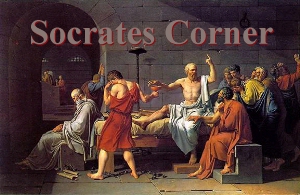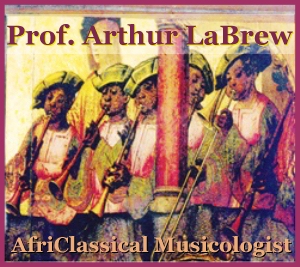On Montesquieu, Rousseau: salvation or noble savage?
~ Montesquieu
Man is born free, but is everywhere in chains.
~ Rousseau
Biography of Montesquieu
Charles-Louis de Montesquieu (1689–1755), was a French Enlightenment political philosopher, man of letters, and lawyer. He is renowned for his expression of the theory of separation of powers, which is applied in many constitutions throughout the world, most famously in colonial America founding documents whereby the constitutional Framers like Washington, Franklin, Adams, Witherspoon, Madison and Jefferson utilized his ideas on separation of powers in establishing America’s Constitution. Montesquieu, together with English jurist William Blackstone (1723-80) and English philosopher John Locke (1632-1704), are the three writers quoted more than any other sources by the constitutional Framers except for the Bible.
Montesquieu and Separation of Powers
Together with Herodotus and Tacitus, Montesquieu has the distinction of being one of the progenitors of anthropology and of being one the first to establish comparative methods of classification to theories on government, in addition to affecting culture and society. French political anthropologist Georges Balandier thought that Montesquieu was “the initiator of a scientific enterprise that for a time performed the role of cultural and social anthropology.” Also, D. F. Pocock, a social anthropologist, believed Montesquieu’s The Spirit of the Laws was “the first consistent attempt to survey the varieties of human society, to classify and compare them and, within society, to study the inter-functioning of institutions.”
Montesquieu’s magnum opus, The Spirit of the Laws (1748) divided French society into three classes: the monarchy, the aristocracy, and the commons. Montesquieu’s theory established Governmental in the sovereign and the administrative. The administrative powers was further subdivided into the executive, the legislative, and the judicial. The Separation of Powers doctrine was above all a buffer against the tyrannical tendencies of human nature that historically tried to both destroy human freedom while consolidating in a monarch or oligarchy. Therefore the three branches of government must be separate from and dependent upon each other so that the power of any one branch would not be able to surpass that of the remaining two powers, either individually or in grouped together. In the 1750s this was a drastic idea since it removed the three Estates organization of the French Monarchy: the clergy, the aristocracy, and the people at large represented by the Estates-General, thus removing the last remnants of a feudal system from the Middle Ages. Unfortunately 40 years later France (unlike colonial America) would ignore Montesquieu’s prophetic philosophy and instead descended into the abyss of societal anarchy, nihilism and state-sponsored genocide.
Montesquieu’s theory on climate change
Like Rousseau, Montesquieu was indeed a Renaissance man where in the section of his book, The Spirit of Laws, called “Persian Letters” outlined his meteorological climate theory, which postulated that climate may greatly influence the nature of man, his actions, and his society. By systematically analyzing environmental effects as a substantial condition of life, Montesquieu anticipated modern anthropology’s study of the influence of material conditions, such as existing energy sources, prepared production systems, and technologies, on the development of intricate socio-cultural structures. Sociologist Louis Althusser’s analysis of Montesquieu’s climate change theories of social dynamics and political forms were helpful to the growth and development of modern agriculture and the domestication of wild plants and animals techniques still in use in modern times.
Biography and writings of Rousseau
Jean-Jacques Rousseau (1712–1778) was a French philosopher, writer and composer of the 18th century. His atheistic, eclectic political philosophy was a major contributor to the French Revolution (1789-99) besides the general growth of modern political, sociological, and educational ideas which are still followed today. Rousseau’s celebrated novel Émile, or On Education is a discourse on the education of the entire person for citizenship. Other essential works that subsequent affected the Romantic Period included his fictional emotional novel. Rousseau’s biographical writings – his Confessions (1782-89), which created the modern autobiography, and his Reveries of a Solitary Walker (1782) – demonstrated the late 18th-century movement known as the Age of Sensibility, and presented an greater emphasis on subjectivity and introspection that later defined the subsequent literary movement of Romanticism and modern writing. His Discourse on Inequality (1754) and The Social Contract (1762) are classics in modern political and social philosophy.
A true Renaissance man, Rousseau was a popular composer of music called Rocco Style which unified the late Baroque styles like C.W. Gluck and C.P.E. Bach with the developing Classical forms of Haydn, Mozart and early Beethoven. Rousseau’s the one-act opera Le devin du village, contains the duet “Non, Colette n’est point trompeuse” which was later rearranged by Beethoven. A leading figure of French Revolution, Rousseau and of the Jacobin Club, in 1794 Rousseau was entombed with honors in the Panthéon in Paris.
Montesquieu and Rousseau in modern times
Montesquieu was himself a moral revolutionary in promoting major reforms to abolish slavery on moral, Natural Law and Natural Rights grounds. He hated bureaucracy, democracy, which he considered tyranny and mob rule and loved governmental efficiency and wrote, “Useless laws weaken necessary laws.” His magnum opus, The Spirit of the Laws (1748), began a philosophical revolution at the concluding decades of the Age of Reason and the apotheosis of the two defining revolutions of the eighteenth century – The American Revolution (1775-83) which gave the word liberty, freedom, natural law, natural rights and equality to all men and The French Revolution (1789-99) the seminal event that birthed liberalism, democracy (mob rule), progressivism and eventually led to the advent of Marxism, communism, fascism, Nazism and the Golden Age of twentieth century totalitarianism.
Long before the advent of Marx, communism, socialism, the Progressive Age, the grandfather of all modern radicalism, the French Revolution promoted social anarchy leading to the anti-clergy, anti-Semitic and anti-Christian genocide based on the radical and hateful ideas of the newspaper editor, Jean-Paul Marat, Saint-Just, the Jacobins, Rousseau, Robespierre, and many other Founding Fathers of the Left. Montesquieu’s Natural Law and Natural Rights ideas led to a dialogue of England, where a new social contract could be established where absolute monarchy power could be exchanged for contemporary free government, where liberty and freedom for all could be protected by a balance of powers. Montesquieu’s innovative ideas of a modern Republic would serve as the chief enemy of alternative worldviews of the Left, chiefly communism, socialism, Marxism, liberalism and progressivism.
Voltaire (who surprisingly isn’t represented Encyclopedia Britannica’s Great Books of the Western World) was the first to criticize Rousseau and his fellow Jacobins and Philosophes, Diderot, D’Alembert, and others allowed the Zeitgeist to affect their Reason and sweep them up in the mobocracy, class envy and religious hatred popular of the times. According to Jacques Barzun: “Voltaire, who had felt annoyed by the first essay [On the Arts and Sciences], was outraged by the second, [Discourse on the Origin of Inequality Among Men], declaring that Rousseau wanted us to ‘walk on all fours’ like animals and behave like savages, believing them creatures of perfection. From these interpretations, plausible but inexact, spring the clichés Noble Savage and Back to Nature.” The political philosopher Benjamin Constant, in a famous speech in1819, On Ancient and Modern Liberty, criticized Rousseau, and other radical followers of the French Revolution (including Abbe de Mably), trusting and accepting that “everything should give way to collective will, and that all restrictions on individual rights would be amply compensated by participation in social power.” Of course these radical ideas of the Left would presage the ideas of Hegel’s atheistic dialectic and later Nietzsche’s Will to Power and Aristocracy Paradigm in the late 1800s.
During the Cold War (1945-90), Karl Popper criticized for what scholars called Rousseau’s “totalitarian thesis” for his support with nationalism and its associated cruelties, as cited for instance in J. L. Talmon’s, The Origins of Totalitarian Democracy (1952). Political scientist J. S. Maloy wrote that “the twentieth century added Nazism and Stalinism to Jacobinism on the list of horrors for which Rousseau could be blamed. … Rousseau was considered to have advocated just the sort of invasive tampering with human nature which the totalitarian regimes of mid-century had tried to instantiate.” However Maloy continues that “The totalitarian thesis in Rousseau studies has, by now, been discredited as an attribution of real historical influence.”
Hanna Arendt on Rousseau (“The banality of evil”)
On related grounds, one of Rousseau’s toughest critics during the second half of the 20th century was political philosopher Hannah Arendt, who held Rousseau’s thought and philosophical influence in perpetrating the anti-religious genocide of the French Revolution as an illustration for the idea of sovereignty with that of the general will demonstrated with the twentieth century golden age of genocidal totalitarianism with the concurrent rise of communism, socialism, fascism and in our time, progressivism. According to Arendt, Rousseau’s Leftist fanaticism and atheism drove his public passion which directly led to the excesses and anti-Christian genocide of the French Revolution. Arendt criticized Rousseau’s aspiration to institute a singular, unified will that Rousseau and later Nietzsche established on the deconstructing of public opinion and the systematic destroying of all other views outside of the State in. From Arendt’s analysis of Rousseau’s writings I believe she later developed her “banality of evil” thesis to explain history’s frequent and predictable historical periods of savageness against mankind by supposed “enlightened” or “racially superior” people. National Socialism in all of its transmutations is the banality of evil.
As mankind stands at the dawn of the twentieth century, the survival of humanity may very well depend on whether civilization collectively is controlled by the Higher Law, Natural Law, and Natural Rights ideas of Montesquieu and the Judeo-Christian philosophy of America’s constitutional Framers vs. the Progressive-Regressive Left worldview that pushes (Cass Sunstein says “nudges”) society backwards into savageness and the ideas of Rousseau’s cult of the Nobel Savage which are demonstrative in modern times in the reemergence of global Socialism, liberal fascism, Wahhabism, ISIS, Islamic jihad and Muslim terrorism… all devout enemies of the Judeo-Christian traditions of intellectual thought, civilization and Reason.
*N.B.: This essay is based in part on ideas from Encyclopedia Britannica Great Books of the Western World, Robert Maynard Hutchins, Editor-in-Chief (University of Chicago, 1952), Vol. 2, Chap. 12 – Constitution; Vol. 3, Chap. 80 – Revolution; Vol. 38 – Montesquieu and Rousseau.
Ellis Washington is a former staff editor of the Michigan Law Review and law clerk at the Rutherford Institute. He is an adjunct professor at the National Paralegal College where he teaches Constitutional Law, Legal Ethics, Contracts and Advanced Legal Writing.
A founding board member of Salt and Light Global, Washington is a co-host on “Joshua’s Trial,” a radio show of Christian conservative thought.
A graduate of John Marshall Law School and post-grad work at Harvard Law School, his latest law review articles include: “Nigger Manifesto: Ideological Racism inside the American Academy” (forthcoming) and “Social Darwinism in Nazi Family and Inheritance Law.”
Washington’s latest book is a 2-volume collection of 230 essays and Socratic dialogues – “The Progressive Revolution” (University Press of America, 2013). Visit his new law blog, NiggerManifesto.com (formerly EllisWashingtonReport.com), an essential repository dedicated to educating the next generation of young conservative intellectuals.
© Copyright 2015 by Ellis Washington
http://www.renewamerica.com/columns/washington/150201
Category: Commentary






